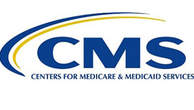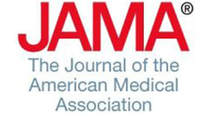Resources |
Resources |
 On November 26, 2018, the Centers for Medicare and Medicaid Services (CMS) released a new proposed rule on prescription drug pricing in Medicare Part D and Medicare Advantage (MA). The proposal tracks closely with policy changes outlined in the Trump administration’s drug pricing “blueprint,” with a focus on providing Medicare plans with levers that will increase their negotiating power to secure additional price concessions from drug manufacturers.  The Partnership for Part D Access has released a new report (two-page summary) which demonstrates that Medicare drug plans are aggressively employing utilization management and other tools across the six protected classes — meaning patients are directed to use lower-costing medications whenever appropriate. The analysis, which was prepared by Avalere Health and sponsored by the Partnership for Part D Access, examines the tools Medicare Part D plans are currently employing to manage utilization of drugs under Medicare’s six protected classes policy. The study also analyzes variation between brand and generic utilization. This study soundly refutes claims that protected classes are driving up costs in the Medicare program because it allows unfettered access to the most expensive medications. In fact, this research shows that plans are aggressively utilizing tier placement and other management tools to drive an overwhelming percent of seniors towards lower cost medications.
 In a letter responding to the Department of Health and Human Services drug pricing request for information (RFI), the Partnership for Part D access outlined the overwhelming evidence that reinforces the importance of the ‘six protected classes’ as they currently stand. Despite widespread bipartisan backing and a history of longstanding support from patients, this new proposal designed to address prescription drug prices could potentially undermine Medicare's vital 'protected classes' policy. Partnership's letter to HHS emphasizes that the six protected classes policy is an essential patient safeguard in Part D, and stand as a guarantee that patients with the most complex conditions will have access to the full spectrum of medications under Part D.  A new study published in the American Journal of Managed Care concludes that medications in Medicare’s six protected classes are the most likely to be subject to various utilization management techniques — such as step therapy or prior authorization — that are employed by Part D plans. Among their findings, the authors found that antipsychotic drugs – one of the six protected classes – is among the most likely classes of drugs to have step therapy imposed upon formulary placement. The study authors also reported that antipsychotics along with antiepileptics are among the most likely drug classes to require prior authorization upon formulary placement.  A new report from The Pew Charitable Trusts concludes that savings from the elimination of protected classes may be minimal within the context of total program spending. While the report notes that removing coverage requirements for some of the protected classes may provide Part D Plans with greater ability to negotiate rebates, “protected classes had low utilization of brand-name drugs without generic equivalents, limiting the potential savings from removing those drugs from formularies.” Additionally, the report correctly highlights the significance of the protected classes in ensuring patient access to medications, and concludes that “lack of adequate access to medications can in some circumstances increase costs to other Medicare programs through increased hospitalizations from complications or increased physician visits to manage medications.  On January 25, 2018, the Partnership for Part D access submitted a letter to in response to a recent Department of Health and Human Services’ (HHS) Request for Information (RFI) seeking information from stakeholders about the Medicare program. The letter urges HHS to retain the Medicare Part D protected classes policy, touting its overwhelming success in providing access to certain medications for the most vulnerable beneficiaries within Medicare. “The six classes of clinical concern, also known as protected classes, is a vital policy that ensures patients with high-risk complicated conditions receive access to the most appropriate medication,” the letter states. “As you evaluate the program, we urge you to retain this policy.” The letter also highlights the consistent support that the protected classes policy enjoys among policymakers and beneficiaries. Over 100 Patient Stakeholders Urge Secretary Price to Maintain ‘Six Protected Classes’ Policy9/8/2017
 On Friday, September 8, 2017, the Partnership for Part D Access presented a letter — cosigned by 111 individual patient advocacy organizations — to Department of Health and Human Services Secretary Tom Price, highlighting the importance to patients of the Medicare six protected classes policy. “The protected classes policy is essential for maintaining access to proper treatment for Medicare beneficiaries,” the letter states. “Patients with a condition in one of the protected classes have very complicated medical needs, and many of these patients must attempt a variety of therapies before coming to a decision with their physicians about what is the most appropriate treatment.” The letter delivers a strong and clear message to the Administration that the protected classes policy continues to provide essential access to medication for Medicare beneficiaries, enjoys widespread, bipartisan support, and should not be changed.  A recent study by economists Amanda Starc of Northwestern’s Kellogg School of Management and Robert Town of the University of Texas highlights how “profit-maximizing” Part D plans are incentivized to limit benefits or increase costs for Medicare beneficiaries because they are not responsible for costs incurred by other parts of the Medicare (ex. hospitalizations). As detailed in the study, Part D plans are motivated by incentives that are sometimes counter to the best interests of patients; they are explicitly incentivized to reduce drug spending, while they have no financial responsibility for the holistic health of the patient. In the study, the authors conclude that in covering drugs less generously, Part D plans end up costing traditional Medicare $475 million per year – a stat that does not account for other social costs, such as the inconvenience and suffering of beneficiaries who end up in the hospital. This study highlights the importance of Medicare’s six protected classes, which ensure that patients with the most complex conditions are guaranteed access to the full range of drugs under Medicare Part D – limiting future medical complications, hospitalizations, and additional costs to the Medicare program.  On June 30, 2016, Sen. Chuck Grassley of Iowa and Sen. Sherrod Brown of Ohio wrote a letter urging the Centers for Medicare and Medicaid Services (CMS) to maintain current policy requiring that Medicare prescription drug plans carry six categories of prescription drugs offered to participating beneficiaries. Senators Grassley and Brown, the sponsors of legislation requiring the maintenance of the “six protected classes,” contend that the policy is meant to “safeguard access to lifesaving medicines for vulnerable Medicare beneficiaries who rely on these classes of prescription drugs to protect them from potential challenges associated with any interruption of therapy.” The Senators go on to note that “MedPAC acknowledges ‘the degree to which plans could achieve potential savings is unclear.’ Regardless of potential savings, we maintain serious concerns with MedPAC’s recent proposal and urge CMS to maintain the six protected classes policy as it currently exists.”  On March 30, 2016, in a letter to Medicare Payment Advisory Commission (MedPAC) Executive Director Mark Miller, the Partnership for Part D Access announced its opposition to a MedPAC proposal that would remove existing protections guaranteeing Medicare beneficiaries access to the full range of anti-depressant and immunosuppressant medicines. The letter notes the detrimental impact removal of these medications from the six classes protected by federal law could have on patients suffering from serious diseases – such as epilepsy, mental illness, cancer, and HIV-AIDS. In recommending that MedPAC abandon the proposal, the Partnership explains that such a change would fail to achieve any significant cost savings for the Medicare program; hold possibly “devastating health implications” for some beneficiaries; contradict Congressional intent; and ignore the “substantial flexibility” that already exists in Part D plans to help manage costs for protected-class medicines.  On Tuesday, September 30, 2014, the Partnership for Part D Access hosted two congressional staff briefings—one on each side of the Capitol—to share patient and healthcare provider experiences that demonstrate the essential importance of protecting beneficiary access to proper care under the Six Protected Classes policy. Held before overflowing hearing room crowds, the briefings featured a pair of courageous patient advocates for the mental health and epilepsy communities, respectively, Trudy Lapin and Carlton Zeigler. The panel, which was moderated by Chuck Ingoglia of the National Council for Behavioral Health, also featured Dr. Nicole Brandt, Senior Care Pharmacist and Professor at the University of Maryland, Dr. Ray Martins, Chief Medical Officer of Whitman-Walker Health, Dr. Jeanie Tse, Associate Chief Medical Officer of the Institute for Community Living, Dr. Matthew Cooper, Director of Kidney and Pancreas Transplantation, MedStar Georgetown, and Dr. Joanne Buzaglo of the Research and Training Institute of the Cancer Support Community.  The Centers for Medicare and Medicaid Services (CMS) announced on March 10, 2014, that they would not finalize a proposal to eliminate protected class status for any drugs under Medicare Part D “at this time.” In a letter to members of Congress, CMS Administrator Marilyn Tavenner said that the agency will abandon its proposal to exclude antidepressants and immunosuppressants for the 2015 coverage year (and antipsychotics in 2016) from their status as protected drug classes. In the letter, Administrator Tavenner notes that CMS may look to advance these proposed changes “in future years.” The Partnership for Part D Access applauded CMS on their decision to withdraw this dangerous proposal. Click below to view the letter.  In a letter to the Department of Health and Human Services (HHS), key Republican leaders urged HHS to rescind a proposed rule that could threaten access to prescription drugs for seniors and people with disabilities. In the letter—spearheaded by Sen. Marco Rubio (R-FL) and signed by 15 Senate Republicans—the Senators urge CMS to retract the ruling immediately, indicating that “the most important pillars of the Part D program have been its robust competition among plans, protection from government interference in contract negotiations, and protection of access to life-saving drugs.” The Senators warn that the proposed rule could “undermine each of these pillars,” resulting in as many as 14 million seniors losing their current drug coverage. Click the document below to view the letter.  On March 7, 2014, the Partnership for Part D Access filed comments urging the Centers for Medicare and Medicaid Services (CMS) to rescind the proposed rule that would eliminate protected class status for several categories of drugs under Medicare Part D. The comment letter notes that in the proposed rule, CMS fundamentally misinterprets the intent of the Affordable Care Act (ACA) by weakening the protected classes policy and transforming a legislative directive to identify classes of clinical concern into one targeting classes of alleged cost concern. The studies cited by the agency do not support its own cost savings assumptions and the rule ignores the substantial spending associated with the destabilization of patient care that it will precipitate. By using it as a tool for cutting costs at the expense of the most vulnerable Medicare beneficiaries, CMS contradicts Congress’s intent to improve and expand the protected classes policy. Click "Download File" to view the comments.  In a letter to CMS Administrator Marilyn Tavenner, House Energy & Commerce Oversight Subcommittee Chairman Tim Murphy (PA-18) questions the agency’s decision to eliminate protected access to mental health drugs on Medicare Part D plans. “The Proposed Rule fails to address the Agency’s past acknowledgement that Medicare beneficiaries require access to medications in therapeutic classes where different drugs are not interchangeable,” Rep. Murphy writes. “The CMS proposal appears not to be grounded in a concern over beneficiary health. Instead, the proposal seeks to increase profits through increased rebate-negotiating leverage for private Prescription Drug Plans Sponsors or insurers.”  On March 7, 2014, the Partnership for Part D Access filed comments urging the Centers for Medicare and Medicaid Services (CMS) to rescind the proposed rule that would eliminate protected class status for several categories of drugs under Medicare Part D. The comment letter notes that in the proposed rule, CMS fundamentally misinterprets the intent of the Affordable Care Act (ACA) by weakening the protected classes policy and transforming a legislative directive to identify classes of clinical concern into one targeting classes of alleged cost concern. The studies cited by the agency do not support its own cost savings assumptions and the rule ignores the substantial spending associated with the destabilization of patient care that it will precipitate. By using it as a tool for cutting costs at the expense of the most vulnerable Medicare beneficiaries, CMS contradicts Congress’s intent to improve and expand the protected classes policy. Click ‘Read More’ to view the comments.  On March 5, 2014, fifty members of the House Energy & Commerce and Ways & Means Committees penned a letter opposing a proposed Center for Medicare and Medicaid Services (CMS) rule that would eliminate protected class status for several categories of drugs under Medicare Part D. The lawmakers say that the rule, which will eliminate protected class status for several categories of drugs, will place harmful limits on Medicare beneficiaries’ access to necessary medications that would otherwise be covered. The group stated that Part D has “demonstrated the ability to provide access to important life-saving and life-enhancing medications for the vast majority of America’s seniors and non-elderly people with severe disabilities.” Click below to view the letter.  In a rare display of bipartisanship, the 24 members of the Senate Finance Committee sent a letter to the Centers for Medicare and Medicaid Services urging the agency to reconsider a proposal to limit protected class status for certain medications under Medicare Part D. “We are very concerned this change will lead to decreased access to medication, especially for those beneficiaries afflicted by mental health problems,” the senators wrote. “These vulnerable individuals rely on multiple medications to control and treat their illnesses. Unfortunately, over the course of treatment, certain medications may cause undesired side effects or become ineffective. As a result, certain beneficiaries must have a wide range of treatment options available. By limiting the number and type of medications offered under a Part D plan, a beneficiary may be forced to rely, if only temporarily, on medication that simply does not work or results in adverse side effects.” Click below to view the letter.
House and Senate Committee Leaders Urge CMS to Withdraw Proposed Changes to Medicare Part D2/5/2014
 In a letter to Health and Human Services (HHS) Secretary Kathleen Sebelius and Centers for Medicare and Medicaid Services (CMS) Administrator Marilyn Tavenner, key Republican leaders question the legality of a proposed regulation which includes changes to Medicare Part D drug access. The letter was signed by Energy and Commerce Committee Chairman Fred Upton (R-MI), Ways and Means Committee Chairman Dave Camp (R-MI), and Senate Finance Committee Ranking Member Orrin Hatch (R-UT). The leaders write, “CMS is proposing to fundamentally undermine the program and jeopardize the prescription drug plans that millions of seniors rely on. […] Given the important legal questions and irreparable harm facing seniors across the country, we request that you reject these harmful changes to the Part D program and withdraw this proposed regulation. A failure to reject this rule will force Congress to evaluate all legislative options necessary to ensure seniors are protected.” Click below to view the letter.  As part of a broader proposed rule regarding Contract Year 2015 changes to Medicare Advantage and Part D programs, CMS is proposing limiting and redefining the Part D program’s protected drug classes to exclude antidepressants and immunosuppressants for the 2015 coverage year, and anti-psychotics in 2016. CMS argued that many of the drugs within these classes are interchangeable and will not cause hospitalization if patients do not immediately take them upon receiving a prescription. CMS determined that antipsychotics also fail to meet the new criteria, however, they will not immediately be excluded from protected status. Click below to view the proposed rule (fact sheet here).  A recent study from Harvard researchers published in the Journal of the American Medical Association (JAMA) found that implementation of the Medicare prescription drug program was followed by a $1,200 decrease in nondrug medical spending among those who previously had limited drug coverage. While researchers were unsure about early indications that newly insured seniors were in fact spending more on prescription drugs than previously, this study found that seniors were experiencing “reduced out-of-pocket costs, and improved medication adherence.” Medicare Part D, therefore, showed significant differential reductions in nondrug medical spending. This reduction in non-drug spending achieved approximately $13.4 billion in overall savings during the first full year of Part D.  The Medicare Modernization Act (MMA) tasked the Centers for Medicare & Medicaid Services (CMS) with implementing the Part D benefit. In designing the benefit to take effect in 2006, CMS took several steps to ensure that Part D plans offered a robust formulary design. For example, a Part D plan must offer at least two drugs in every category or class of drugs (unless there is only one drug in the therapeutic category or class). In designing the two-drug policy, CMS wanted to “ensure sufficient drug choice for beneficiaries.” Click "Read More" to view the final rule.  According to a report from the non-partisan Congressional Budget Office (CBO), even among drugs approved to treat the same condition, some drugs in a class may be more effective than others for different patients. In many therapeutic classes, substitution between a brand name drug and a chemically different generic drug is not medically appropriate, particularly when the generic “substitute” is not the Food and Drug Administration (FDA)-approved generic equivalent of the specific brand medicine originally prescribed by the physician. The CBO concluded that “even among drugs approved to treat the same condition, important differences can exist. Some drugs in a class may be more effective than others, at least for some members of the population. Certain subpopulations—for example, people with liver or kidney disease—may need a specific brand-name drug in a class. In addition, some drugs in a class may have harmful side effects for different patients. […] Finally, physicians’ clinical experience with their patients may lead them to conclude that certain patients respond better to a particular drug from a given class.” Click below to view the report.  Under the Affordable Care Act (ACA), after reiterating the requirement that Part D plans cover “all” drugs in a protected class, Congress provided the Secretary of Health and Human Services (HHS) with authority to “identify, as appropriate, categories and classes of drugs for which the Secretary determines are of clinical concern.” Congress gave no indication, in the text of the ACA or in the accompanying body of legislative history, that it intended section 3307 be used to weaken the protected classes policy. A reading of section 3307 in the historical context of the policy’s initial enactment and subsequent endorsement in MIPPA, less than two year prior to the passage of the ACA, can only conclude that the provision was a continuation of Congress’ strong support for the protected classes policy. Furthermore, Congress enacted section 3307 without modifying the Part D non-discrimination requirement in any way. The clear intent of Congress was for the six identified classes of medications to maintain protected status. Click the below to view the law.
 During implementation of the Medicare Modernization Act (MMA), which created the Medicare Part D drug program in 2003, CMS (at the urging of Congress) issued sub-regulatory guidance directing prescription drug plans (PDPs), through contract provisions, to cover “all or substantially all” medications within six therapeutic classes and categories that the agency identified. CMS explained that it “instituted this policy because it was necessary to ensure that Medicare beneficiaries reliant upon these drugs would not be substantially discouraged from enrolling in Part D plans and to mitigate the risks and complications associated with an interruption of therapy for these vulnerable populations.” Consistent with that rationale, the policy protected access to: anticonvulsants (for epilepsy); antidepressants; antineoplastics to treat cancer; antipsychotics; antiretrovirals for HIV/AIDS; and immunosuppressants to prevent rejection of transplanted organs. Click below to view the guidance.
|
AuthorWrite something about yourself. No need to be fancy, just an overview. Archives
March 2021
Categories |
||||||||||||||||||||||||||||||||
Learn more |
What's New? |
|
